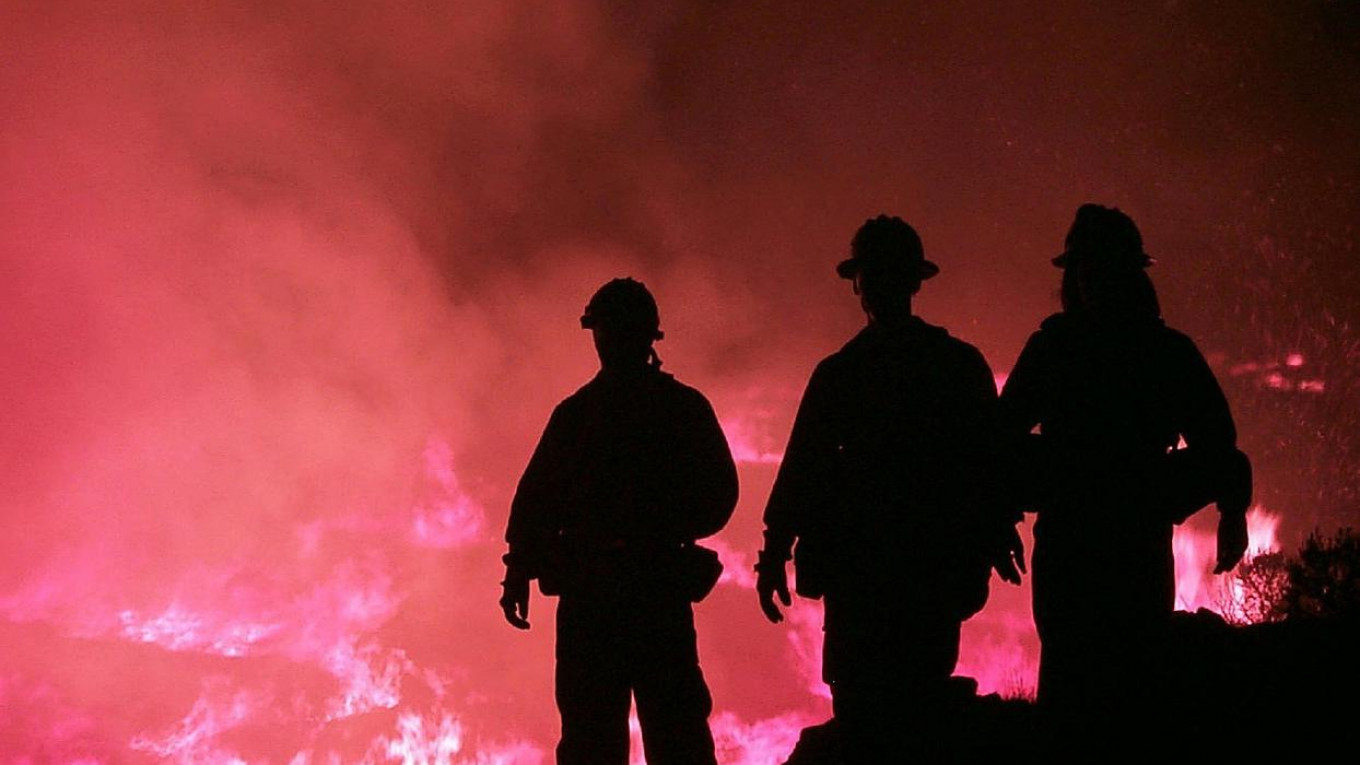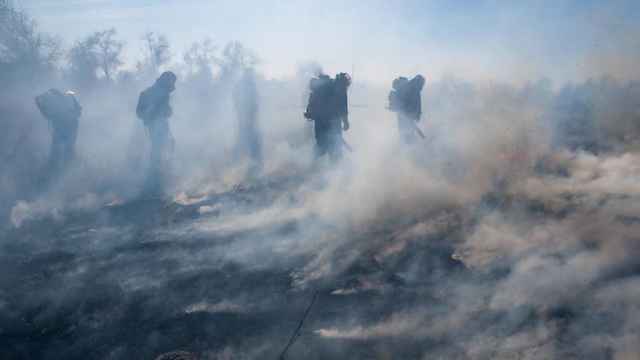Damages from the wildfires in Russia's southern Krasnodar region are estimated at 5 billion rubles ($79.5 million), according to a statement released by Greenpeace Russia on Thursday. The organization sent a team of volunteer firefighters to the region in September to help extinguish the fires, but local residents sabotaged their efforts and the team had to leave.
“When the [Greenpeace] expedition ceased its firefighting activities, the damage from the fire was estimated at 690 million rubles [$11 million],” the statement reads. “Sabotaging the expedition and not taking the necessary measures cost the state 4.3 billion rubles [$68 million].”
Read The Moscow Times' story about the brutal attack on the Greenpeace firefighting team and other cases of sabotage against ecology activists in Russia.
According to Greenpeace, the Emergency Situations Ministry thanked the activists for their effort in the Krasnodar region, but maintained that “the region and the Emergency Situation Ministry doesn't need any help from volunteers.”
This doesn't quite add up, says Grigory Kuksin, the leader of the volunteer group that went to tackle fires in the Krasnodar region. The ministry and its firefighters, he says, are charged with protecting cities and towns, but not the wilderness, he points out. “All the firefighting equipment they have is suited for this particular task. Firefighters can't handle fire in the reed, for example. They can't approach it,” Kuksin said. “It is silly to refuse qualified assistance from people who are trained, motivated, and better equipped.”
Volunteer firefighters in the Krasnodar region were attacked with knives and stun grenades at their camp in September. A group of eight men damaged property, slashed the tires of the group's cars, and stole equipment. They also painted on the camps' gates graffiti reading “Here are the pendosy,” (a derogatory Russian term for Americans).
A Message from The Moscow Times:
Dear readers,
We are facing unprecedented challenges. Russia's Prosecutor General's Office has designated The Moscow Times as an "undesirable" organization, criminalizing our work and putting our staff at risk of prosecution. This follows our earlier unjust labeling as a "foreign agent."
These actions are direct attempts to silence independent journalism in Russia. The authorities claim our work "discredits the decisions of the Russian leadership." We see things differently: we strive to provide accurate, unbiased reporting on Russia.
We, the journalists of The Moscow Times, refuse to be silenced. But to continue our work, we need your help.
Your support, no matter how small, makes a world of difference. If you can, please support us monthly starting from just $2. It's quick to set up, and every contribution makes a significant impact.
By supporting The Moscow Times, you're defending open, independent journalism in the face of repression. Thank you for standing with us.
Remind me later.






